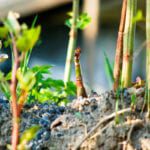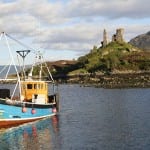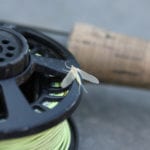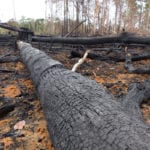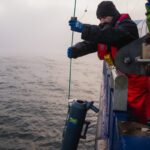Satellite maps variability of UK countryside
New hi-tech map reveals the most urban, most wooded and most arable counties
The Centre for Ecology & Hydrology (CEH) has used the latest...
Global biodiversity framework falls short on chemicals
Environmental scientists, ecologists, and policy experts argue in a letter published on 16 June in Science that the proposed Post-2020 Global Biodiversity Framework –...
Aerial mapping firm launches tree failure risk tool
In partnership with the University of Lancaster, aerial mapping company Bluesky has launched a new tool which can be used to predict the likelihood...
Research partnership to look at how infrastructure programmes interact with the natural environment
Global infrastructure services firm AECOM and the University of Salford launched a new research partnership on 16 August with the aim of improving understanding...
Student competition showcases innovative designs to reconnect people with nature
Environmental charity Hubbub has announced the winners of its 2021 sustainable design competition for students, Design By Nature. Students (and recent graduates) across the UK were challenged to get back to nature, with briefs inspired by the idea that ‘Good things happen when we connect people to nature’.
Number of wildfires to rise by 50% by 2100 and governments are not prepared,...
Climate change and land-use change are projected to make wildfires more frequent and intense, with a global increase of extreme fires of up to...
RSPB urges public to act to help save swifts
The RSPB is calling on homeowners and businesses in UK towns and cities to take simple steps to help save swifts
Swift numbers...
Over 600 seals rescued off the coast of the UK in the past 10...
Wildlife charity Sea Life has rescued and rehabilitated 636 seals over the past 10 years with its rescue teams based at Scarborough and Hunstanton,...
Plants struggle to keep pace with climate change, says study
How plants adapt to climate change, and the challenges therein, is coming into clearer focus, according to researchers from UC Santa Cruz.
Research has long...
IPBES announces co-chairs to lead key assessment of invasive alien species
Three leading global experts were on 22 May announced as the co-chairs of a new and vitally important assessment by the Intergovernmental Science-Policy Platform...
Report reveals moves to low impact fishing could benefit coastal economy
Placing proportionate limits on bottom-towed fishing could help boost long-term jobs in fragile rural communities, as well as protect the environment, contends a coalition...
40 tonnes of bee-harming neonics a year flow through Asia’s longest river
More than 40 tonnes of bee-harming neonicotinoid insecticides, known as neonics, have been estimated to be flowing through Asia’s longest river every year, according...
Fossil fuel drilling scheme faces High Court challenge
A scheme to allow a drilling project on the edge of an Area of Outstanding Natural Beauty (AONB) in Surrey is being challenged in...
Plastics found in fifty percent of freshwater insects
New research appears to show that microplastics are being overlooked in river ecosystems where they contaminate insects and pose risk to other wildlife.
Research led...
£1.25m award for using space and AI technology to restore Surrey’s wildlife habitats
The Dream Fund’s £1.25m award invites 1,500 volunteers to help use space and AI technology to restore Surrey’s wildlife habitats
A Surrey-based project to...
Report highlights risks to effectiveness of BNG legislation
There are risks to the long-term effectiveness of the government's new Biodiversity Net Gain (BNG) policy, launched in February, according to a 17 May...
Report highlights UK and US financial institutions’ contribution to Amazon deforestation
A report released on 12 March by Amazon Watch reveals the involvement of five American and British financial institutions in billions of dollars in...
Fish mislabelling a threat to marine conservation
Scientists have found widespread mislabelling, poor trading practices and neglect for endangered species are threatening fish stocks after DNA-testing seafood products sold across...
Vineyards adversely affect soil quality, say British Columbia researchers
Biologists from UBC’s Okanagan campus are digging under vineyards to see if the Okanagan’s grape industry is affecting soil quality.
The team of researchers spent...
Fish eDNA project highlights promise of environmental survey work at offshore wind farms
A new report validates the use of fish environmental DNA (eDNA) survey methods, declaring that they could transform the way fish ecology surveys are...












